Bernard G. Greenberg Distinguished Lecture Series
The Bernard G. Greenberg
Distinguished Lecture Series
The Bernard G. Greenberg Distinguished Lecture Series honors the first chair of the UNC Biostatistics Department, Dr. Bernard G. Greenberg, who later served with distinction as dean of the School of Public Health from 1972 to 1982.
2024 Greenberg Lecture Series – May 20 and 21
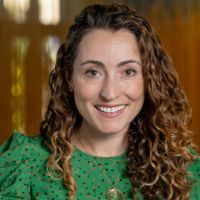
Daniela M. Witten
This year, Daniela M. Witten, PhD, Professor of Statistics and Biostatistics the Dorothy Gilford Endowed Chair in Mathematical Statistics at the University of Washington, will present the 2024 Greenberg Lectures. She will present lectures on:
Lecture #1: “Data Thinning and its Applications”
Read more/less.
Read more/less.
Lecture #3: “Validation Strategies for Correlated Gaussians”
Read more/less.
First, Dr. Witten will consider the case where there are multiple independent draws of the multivariate Gaussian. In this case, we can make use of properties of the (singular) Wishart distribution to decompose multivariate Gaussian data into two or more independent sets, without resorting to sample splitting. By contrast, when faced with a single draw from a multivariate Gaussian, as arises in applications involving time series and spatial data, this strategy fails: it is impossible to generate independent non-trivial random vectors or matrices without losing information about the unknown covariance. Instead, she will introduce a strategy to decompose a single multivariate Gaussian into dependent training and test sets, in order to fit a model on the training set and validate it on the conditional distribution of the test set given the training set.The proposed decomposition strategies extend beyond the finite-dimensional Gaussian to the infinite-dimensional setting, i.e. Gaussian processes. These strategies are explored in simulation and on EEG data, in the contexts of model selection and inference after model selection. This is joint worth with Ameer Dharamshi (UW), Anna Neufeld (Fred Hutch), Lucy Gao (UBC), and Jacob Bien (USC).
Past Speakers
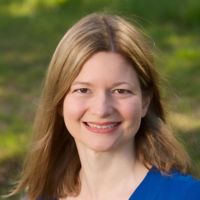
Amy H. Herring
2023 – Amy H. Herring, Duke University
Amy H. Herring is the Sara & Charles Ayres Distinguished Professor of Statistical Science, Global Health, and Biostatistics and Bioinformatics at Duke University. Dr. Herring received her doctorate in biostatistics at Harvard University in 2000 and joined the biostatistics faculty at UNC-Chapel Hill that same year. She was an esteemed faculty member at UNC, rising to the level of Distinguished Professor and Associate Chair of Biostatistics, before moving to Duke University in 2017. Her research interests include development of statistical methodology for longitudinal or clustered data, Bayesian methods, latent class and latent variable models, missing data, complex environmental mixtures, and applications of statistics in population health and medicine. She has received numerous awards for her work, including the Mortimer Spiegelman Award from the American Public Health Association as the best applied public health statistician under age 40. Her research program is funded by NIH, and she holds leadership positions at the national and international level, including as Chair of the American Statistical Association’s Section on Bayesian Statistical Science, as President-Elect of the International Society for Bayesian Analysis, and as a member of the Board of the International Biometric Society. She sits on several national committees, including the National Academy of Science Committee on Applied and Theoretical Statistics and the Research Committee of the Health Effects Institute.

Andrew Gelman
2022 – Andrew Gelman, PhD, Columbia University
Dr. Andrew Gelman is the winner of the 2022 Greenberg Distinguished Lecturer Award, and presented talks as part of the 2022 Bernard G. Greenberg Distinguished Lecture Series. Dr. Gelman is a professor of statistics and political science at Columbia University. He has received the Outstanding Statistical Application award three times from the American Statistical Association, the award for best article published in the American Political Science Review, and the Council of Presidents of Statistical Societies award for outstanding contributions by a person under the age of 40. In 2022 he presented three Greenberg Lectures on “All the ways that Bayes can go wrong,” “From sampling and causal inference to policy analysis: Interactions and the challenges of generalization,” and “Statistical workflow.”

Xihong Lin
2021- Dr. Xihong Lin, Harvard University
Dr. Xihong Lin, winner of the 2021 Greenberg Distinguished Lecturer Award, will present talks as part of the 2021 Bernard G. Greenberg Distinguished Lecture Series. Lin is a Professor and former Chair of the Department of Biostatistics, Coordinating Director of the Program in Quantitative Genomics at the Harvard T. H. Chan School of Public Health, and Professor of the Department of Statistics at the Faculty of Arts and Sciences of Harvard University, and Associate Member of the Broad Institute of Harvard and MIT.

Nicholas Jewell
2019- Dr. Nicholas Jewell, University of California Berkeley
Dr. Nicholas Jewell, winner of the 2019 Greenberg Distinguished Lecturer Award, presented talks as part of the 2019 Bernard G. Greenberg Distinguished Lecture Series. Jewell is a Professor of Biostatistics and Statistics from the University of California Berkley. He received his PhD in mathematics from the University of Edinburgh in 1976.

Jamie Robins
2018- Dr. Jamie Robins, Harvard University
Dr. Jamie Robins, winner of the 2018 Greenberg Distinguished Lecturer Award, presented talks on May 14 and 15 as part of the 2018 Bernard G. Greenberg Distinguished Lecture Series. Robins is a Mitchell L. and Robin LaFoley Dong Professor of Epidemiology at Harvard University. He received his MD from the Washington University School of Medicine in 1976.
2017- Dr. Robert E. Kass, Carnegie Mellon

Robert E. Kass
Dr. Robert E. Kass, winner of the 2017 Greenberg Distinguished Lecturer Award, presented talks on May 15 and 16 as part of the 2017 Bernard G. Greenberg Distinguished Lecture Series. Kass is a Maurice Falk Professor of Statistics and Computational Neuroscience at Carnegie Mellon University. He received his doctorate in statistics from the University of Chicago and has been been on the faculty of the Department of Statistics at Carnegie Mellon since 1981.

James O. Berger
2016 – Dr. James O. Berger, Duke University
James O. Berger, PhD, winner of the 2016 Greenberg Distinguished Lecturer Award, presented three talks on May 12 and 13 as part of the 2016 Bernard G. Greenberg Distinguished Lecture Series. Berger’s lectures included “The Use of Rejection Odds and Rejection Ratios in Testing Hypotheses,” [PDF] “The Progress on the Foundations of Bayesian-Frequentist Unification” [PDF] and “Bayesian Multiplicity Control” [PDF].
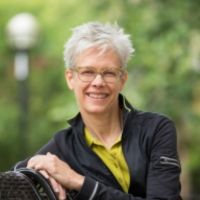
Susan A. Murphy Photo Courtesy of the John D. and Catherine T. MacArthur Foundation
2015 – Dr. Susan A. Murphy, University of Michigan
Dr. Susan A. Murphy, winner of the 2015 Greenberg Distinguished Lecturer Award, presented talks on May 11 and 12 as part of the 2015 Bernard G. Greenberg Distinguished Lecture Series. Dr. Murphy is a H.E. Robbins Distinguished University Professor of statistics and professor of psychiatry at the University of Michigan. She received her doctorate in statistics from UNC-Chapel Hill and was named a John D. and Catherine T. MacArthur Foundation Fellow for her work in designing the Sequential Multiple Assignment Randomized Trial, or SMART.

Jianqing Fan
2014 – Dr. Jianqing Fan, Princeton University
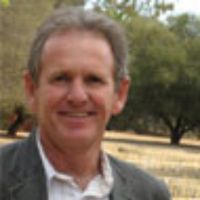
Trevor Hastie
2013 – Dr. Trevor Hastie, Stanford University
Dr. Trevor Hastie, winner of the 2013 Greenberg Distinguished Lecturer Award, presented talks on May 8 and 9 as part of the 2013 Bernard G. Greenberg Distinguished Lecture Series. Hastie is a professor of statistics and professor of health, research and policy at Stanford University. Hastie’s lectures included “Sparse Linear Models” [PDF] “Matrix Completion and Large Scale SVD Computation” [PDF] and “Graphical Model Selection” [PDF].

Robert John Tibshirani
2012 – Dr. Robert John Tibshirani, Stanford University
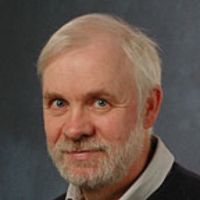
Roderick Little
2011 – Dr. Roderick Little, University of Michigan
Dr. Roderick Little, winner of the 2011 Greenberg Distinguished Lecturer Award, presented talks on May 12 and 13 as part of the 2011 Bernard Greenberg Distinguished Lecture Series. Little is the Richard D. Remington Collegiate Professor of Biostatistics at University of Michigan. Little’s lectures included “Calibrated Bayes: Spanning the Divide Between Frequentist and Bayesian Inference” [PDF] “Some Methods for Handling Missing Values in Outcome Variables” [PDF] “Subsample Ignorable Likelihood Methods for Regression with Missing Values of Covariates – throwing data away can actually pay!” [PDF] and “Measurement Error as Missing Data: The Case of Epidemiologic Assays” [PDF].
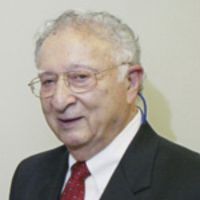
Marvin Zelen
2010 – Dr. Marvin Zelen, Harvard University
Dr. Marvin Zelen, winner of the 2010 Greenberg Distinguished Lecturer Award, presented talks as part of the 2010 Bernard Greenberg Distinguished Lecture Series. Dr Marvin Zelen is a Lemuel Shattuck Research Professor of Statistical Science in the department of biostatistics at Harvard University. View the presentation slides.
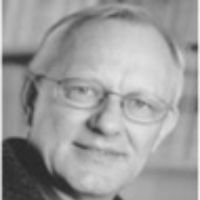
Niels Keiding
2009 – Niels Keiding, University of Copenhagen
Niels Keiding, winner of the 2009 Greenberg Distinguished Lecturer Award, presented talks on May 4 and 5 as part of the 2009 Bernard Greenberg Distinguished Lecture Series. Keiding is the director of the Danish Graduate School in Biostatistics at the University of Copenhagen. Keiding’s lectures included “Event history analysis and the cross-section” [PDF] “Time-to-pregnancy: classical designs” [PDF]”Time to pregnancy: current duration data” [PDF] and “Describing episodes of drug treatment from joint observation of a prescription registry and a cross-sectional survey” [PDF].
